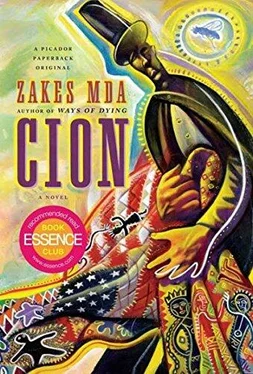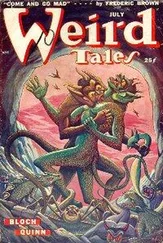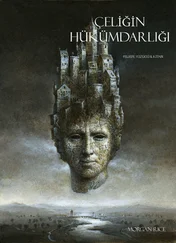When they arrived in Gallipolis it was too late. The steamboat was already sailing away. Birdman was going to be sold as a slave in Kentucky. All they could do was to curse the steamboat captain. They knew him very well. They had often bribed him to take runaways to the Ohio side. The scoundrel worked both ways. He was sometimes bribed by slave hunters to take their captives to the Virginia side of the river. The bastard worked for the highest bidder.
Abednego and Quigley had on many occasions recovered abducted blacks in steamboats before they sailed away. It pained them greatly that they failed to recover their mentor.
In the weeks and months that followed the two men went on with their daily lives. Yet deep inside each one of them was a deep pain that could not be healed. Abednego gradually withdrew from the Underground Railroad and focused on the orchards and on experimenting with pawpaw. Quigley built a whiskey still and rode the countryside flogging his moonshine made of corn and wheat; or negotiating for the freedom of human property in exchange for great quantities of his potent whiskey with the Christianized Cherokees across the river who had adopted the European habit of buying and selling Africans. He was relentless in his quest for the freedom of others. He was also relentless in another quest: that of redeeming his soul. He became part of the Great Awakening, attending religious revivals that were sweeping the Appalachians, screaming the name of the Lord at nightlong Methodist and Baptist vigils without discrimination.
His active participation in religious revivals did not stop him from dabbling in the art of predicting the future using his red and white scroll whose inscriptions he continued to struggle to interpret. But he told people whatever they wanted to hear and therefore he spread happiness all around.
When he returned to Athens County from his quests he helped his good wife, who was now running a full-time Underground Railroad station on the outskirts of the city. Not only did he become an esteemed stationmaster, but he bore witness whenever it was necessary to do so. Black people could not bear witness in cases involving white people. Even free blacks who had been captured by slave hunters could not bear witness on their own behalf against their white captors. They needed a white person to testify on their behalf; otherwise they were denied legal protection. This, of course, emboldened slave hunters who defied the laws against kidnapping free blacks. Quigley always stepped forward to bear witness for the free blacks. He was such a regular at the courts that the judges derisively dubbed him a “professional witness” and placed little or no weight on his testimony.
In the evenings Quigley and Abednego sat on the porch of Harry Corbett’s house smoking their pipes. At these moments they did not speak much to each other. Only the smoke rings that floated above their heads spoke of their sorrow. At odd moments one of them would remember something from the very distant world of Fairfield Farms. Then they would ruminate about it. And after some more silence one would provide some piece of wisdom. Like when Quigley related some titbit from the Underground Railroad grapevine: Mrs. Fairfield was rumored to have manumitted her exotic slave and run away with him to Ohio. Since the runaway lovers could not feel safe anywhere in the state, they were en route to Canada. After digesting the news with a few puffs and a number of lazy smoke rings Abednego observed that the hunting season would provide particularly tasty deer that year.
One day, after a particularly long silence, Abednego jumped up and said: “We gotta do something!”
“’Bout what?” asked Quigley.
“Birdman…Nicodemus. You was right, Niall. We gotta find Tobias.”
“Yeah,” agreed Quigley. “None of us gonna be top dollar till we do something about the bastard.”
It was not easy to find William Tobias. People had not heard of him for many years, which was rather strange because he had been a flamboyant fellow who was in love with his own booming voice and was fond of riding the paved streets with a throng of bodyguards in red and black uniforms that resembled those of some storybook military guard. And then one day, poof, William Tobias was not there!
It took a lot of patience to find him living a frugal life in the town of Ripley, Ohio. Clearly the man was enamored of the Ripley name since his origins were in a town of a similar name in Virginia. The two men could not understand how Tobias had fallen on hard times since slave hunting, even in those dying years of slavery, was still a lucrative business. When they found him in a run-down house he was in conference with another man who soon left on horseback. Quigley knew him immediately as one of the sons of the Reverend Rankin and wondered what a respected abolitionist and slave stealer was doing with a dirty man like Tobias.
Abednego was suddenly seized by a fit of anger, which he tried to control nevertheless. He remembered that face very well, although Tobias was now much grayer and the face had lost its luster and chubbiness. The man extended his hand to greet the visitors but Abednego could not bring himself to touch the hand that had murdered his brother. Quigley quickly withdrew his in solidarity.
Tobias did not know who the men were, but he invited them in and offered them his hospitality despite the obvious meagerness of his means. Even when the men introduced themselves their names did not mean anything to him. He assumed that they had come to join him for evening prayers or had some slave fugitive business to discuss.
“So how come you so poor if you still in that business?” asked Quigley.
Tobias laughed, and then said his guests were misunderstanding him. If they were looking for a slave hunter they had come to the wrong place. He had found the Lord, or the Lord found him, years ago. He was now a Quaker and an abolitionist. He was working in cahoots with the Rankin family and other Underground Railroad operators. That was why he had settled in Ripley by the Ohio River.
“Shite,” screamed Quigley, “you wanna make things difficult for us. We came to bloody do you in.”
“Why do you want to kill me?” asked Tobias.
“’Cause you killed my brother,” said Abednego. He did not say anything about Birdman. It was already obvious to both men that Tobias had nothing to do with Birdman’s capture. When it happened he was already a Quaker abolitionist.
“I don’t know your brother,” said Tobias.
Abednego took this as an indication that William Tobias was a callous liar who was now denying murdering his brother when he saw him do it with his own eyes. He hit him on the head with his Brown Bess, the flintlock musket that he used to carry during his conductor days but that had never fired a shot in anger. Tobias fell on the floor. He pleaded with the men to leave him alone for he had no money to give them. Whatever he owned had been given to the poor years ago. He had had a personal encounter with God. Because God’s spirit lived deep in his soul he was a pacifist and did not believe in any form of violence or in the taking of human life.
“Shut up, you son of a bitch,” yelled Abednego, blinded by rage. “You killed my brother Nicodemus in cold blood. You captured fugitives and took them back to slavery.”
At this time Tobias was on his knees, his shaking hands together as if in prayer.
“That was then; I am a changed man now. I renounced that sinful life years ago. I disavowed all belief in slavery and in the inferiority of any race of God’s people. I have the Inner Light. God has forgiven me.”
“That ain’t gonna bring my brother back,” said Abednego raising the musket and taking aim. Quigley was too slow to stop him from blasting the man’s head off. Quigley then whipped out his own pistol and shot Tobias’s corpse so as to share his friend’s guilt and to personally experience any pangs of conscience that were sure to attack Abednego when he regained his sanity.
Читать дальше












